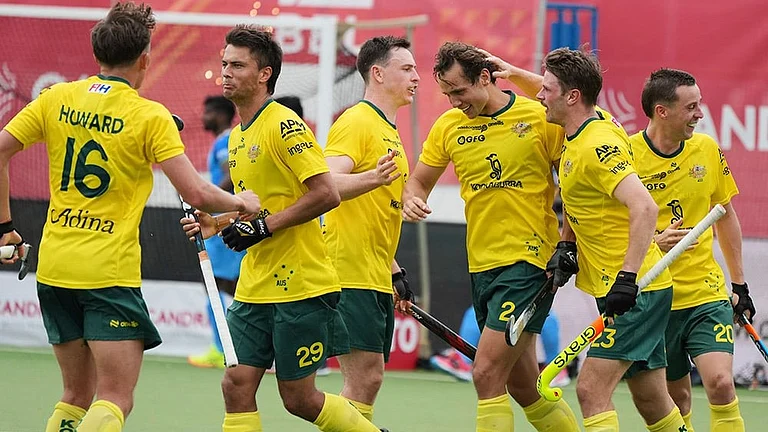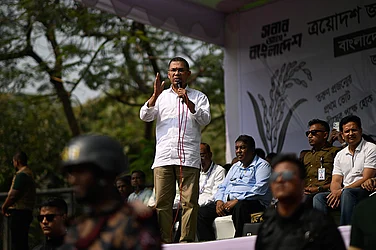One of Libya's rival prime ministers said Monday he has suspended his foreign minister a day after Israel revealed that its chief diplomat met with her last week — news that prompted scattered street protests in the chaos-stricken North African nation.
Abdul Hamid Dbeibah, who heads the government of national unity in the capital, Tripoli, also referred Foreign Minister Najla Mangoush for investigation over the meeting, which was the first ever between top diplomats of Libya and Israel. Israeli Foreign Minister Eli Cohen and Mangoush met in Rome last week. It was a small breakthrough for Israel's government, whose hard-line policies toward the Palestinians have led to a cooling of its burgeoning ties with the Arab world.
Cohen said they discussed the importance of preserving the heritage of Libya's former Jewish community, including renovating synagogues and cemeteries. The talks also touched on possible Israeli assistance for humanitarian issues, agriculture and water management, according to Israel's Foreign Ministry. The Libyan foreign ministry, meanwhile, sought to downplay the importance of the meeting as “unprepared and an unofficial meeting during a meeting with Italy's foreign minister. It said in a statement that Mangoush's encounter with Cohen didn't include “any talks, agreements or consultations”.
Israel's foreign ministry did not respond to reporters' questions early Monday, including whether Cohen's announcement had been coordinated with Libya. Libya was plunged into chaos after a NATO-backed uprising toppled longtime dictator Moammar Gadhafi in 2011. The oil-rich country has been split between the Western-backed government in Tripoli and a rival administration in the country's east. Each side has been backed by armed groups and foreign governments.
Gadhafi was hostile to Israel and a staunch supporter of the Palestinians, including radical militant groups opposed to peace with Israel. Sunday's announcement of the meeting prompted scattered protests in Tripoli and other towns in western Libya. Protesters stormed the foreign ministry headquarters to condemn the meeting, while others attacked and burned a residence for the prime minister in Tripoli, according to local reports.
In the town of Zawiya protesters burned the Israeli flag, while others held the Palestinian flag. There were also protests in the city of Misrata, a stronghold for Dbeibah, according to footage circulated on social media and verified by The Associated Press. Khalid al-Mishri, an Islamist politician who was the chair of the State Council, a Tripoli-based legislative body, condemned the meeting and called for the dismissal of Dbeibah's government, which is close to the U.S. and the West.
“This government has crossed all prohibited lines and must be brought down,” he wrote on the X platform, previously known as Twitter. The east-based House of Representatives also slammed the meeting as a “legal and moral crime.” It called for an emergency session Monday in the eastern city of Benghazi.
In Israel, Yair Lapid, a former foreign minister and prime minister, criticized Cohen for going public with the sensitive meeting."Countries of the world this morning are looking at the irresponsible leak of the meeting of the Israeli and Libyan foreign minister and asking themselves: is it possible to manage foreign relations with this country? Is it possible to trust this country?” Lapid said in a statement.





















